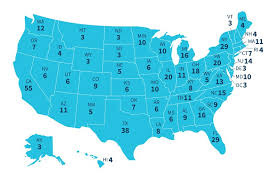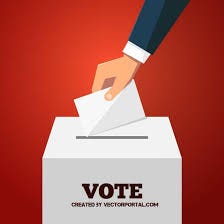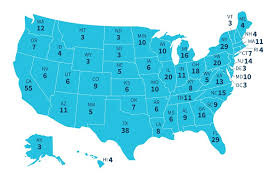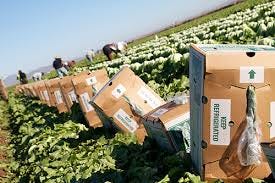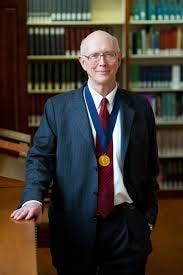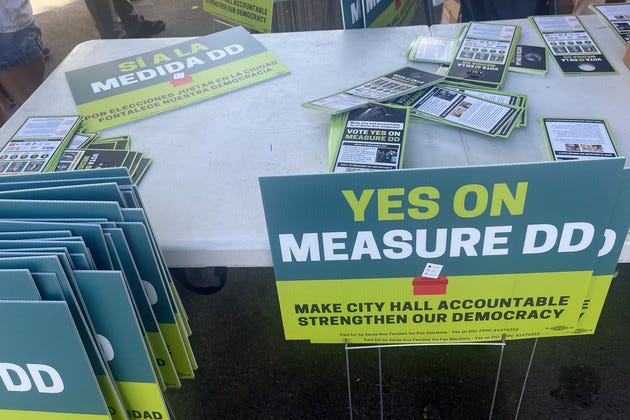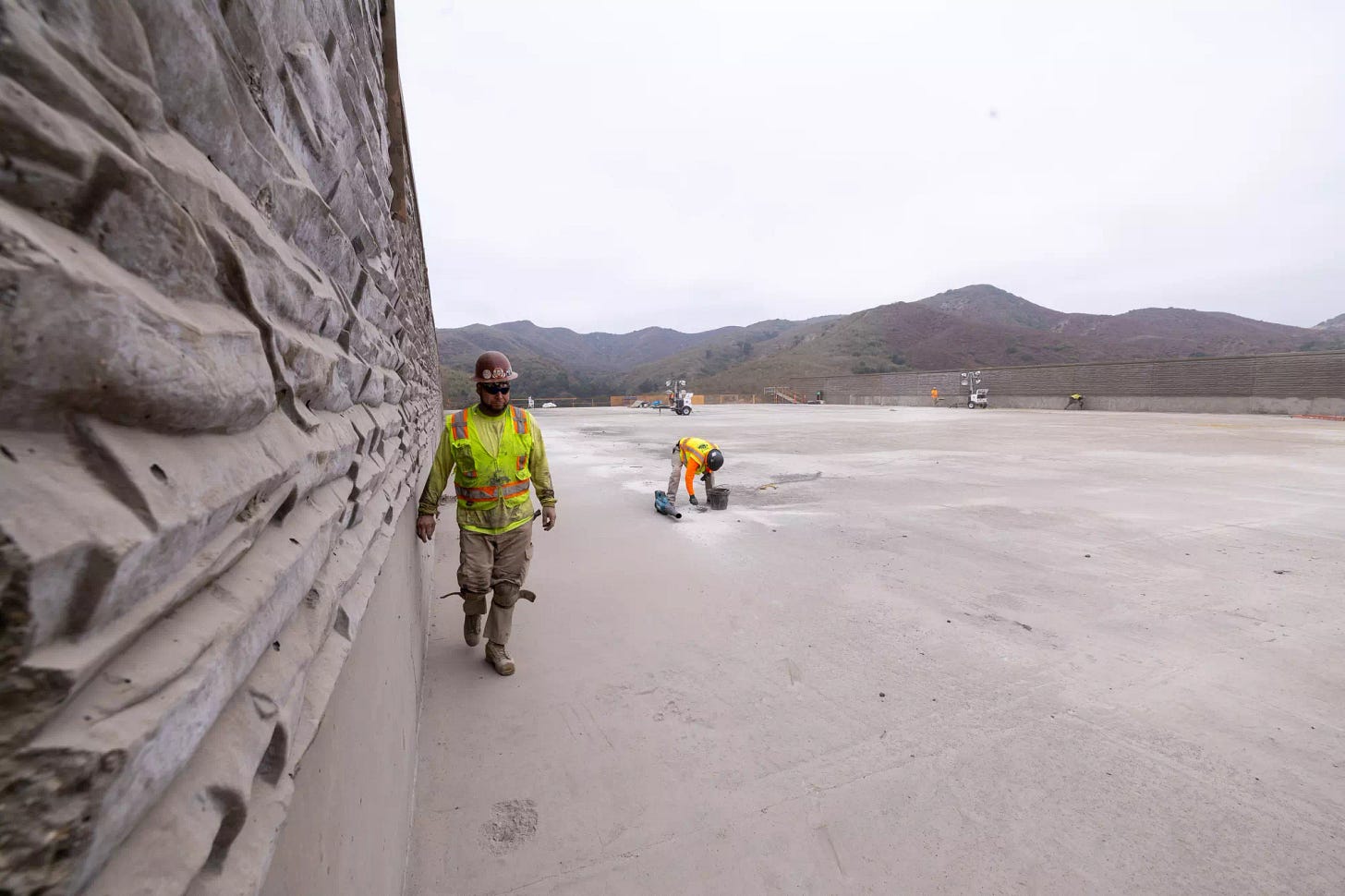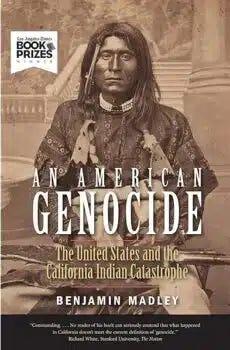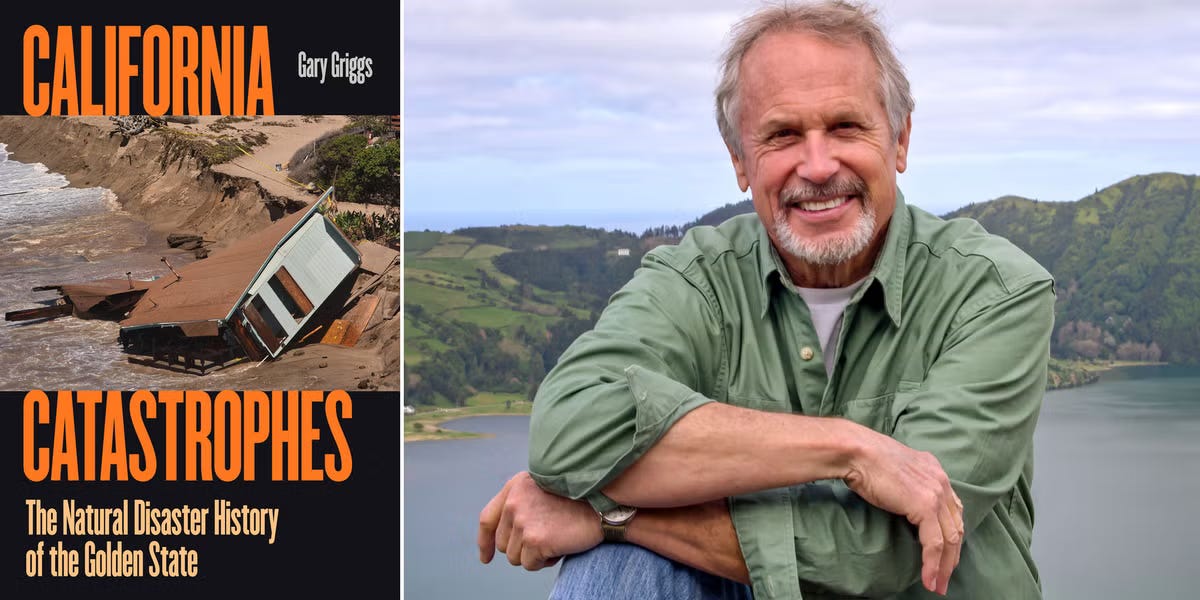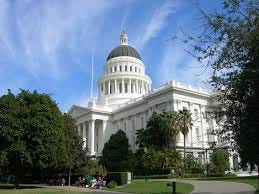Issue #202: Election time: The Electoral College and more
ICI brings you this week's news highlights
As the election looms, it is more important than ever to keep a source of independent and in-depth California news coming. If you can afford it, now is a great time to chip in to keep our volunteer-run newsletter going!
Election angst as vote approaches
Two new wildlife corridors increase connectivity for our wild friends
Electoral College may be Harris friend
Was this email forwarded to you? Become a free subscriber here.
THINKING ABOUT THE ELECTION
How the Electoral College Works and Why It's So Controversial
Still seems odd: American voters do not directly elect the president.
Matthew Green, KQED
“Every four years, during presidential elections, state political parties each appoint a group of “electors.” They are usually committed party activists who have pledged to support whichever party candidate has won the state’s popular vote.
In other words, if “Democratic Candidate A” got the most votes from California voters, then each of the Democratic electors from California would, in turn, be expected to throw their support behind that candidate in the Electoral College vote.
On the Monday following the second Wednesday of December (stay with me here), each state’s electors meet in their respective state capitals and cast their votes – one for president, and one for vice president.
These events don’t usually get a whole lot of attention because everyone already knows that those electors are almost certainly going to vote for the candidate in their own party.”
How to finally abolish the Electoral College
Jeff Greenfield, Politico
“The latest New York Times-Siena College poll says the presidential race is a dead heat. So do any number of other national polls. In the battleground states, virtually every poll either reports a tie, or results well within the margin of error. The upshot: Even as Kamala Harris’ national polling lead over Donald Trump has appeared to shrink, her strength may be holding up in the swing states that matter.
And this suggests the possibility that Election Day may produce a result we have never seen before: a Republican winning the popular vote but losing the Electoral College. That, in turn, just might restore a once-bipartisan consensus — that it is time for the United States to do away with the Electoral College once and for all and let the voters actually decide the presidency.”
Most California Republicans in Congress won’t commit to certifying the 2024 presidential election
Yue Stella Yu and Jenna Peterson, CalMatters
“Eight of California’s current Republican members of Congress were in office, but only Rep. Young Kim — who flipped her northern Orange County seat in 2020 — voted to certify the results without casting doubt on the election outcome. “The constitution does not give Congress the authority to overturn elections. To take such action would undermine the authority of the states,” she said in a statement in 2021.
She told CalMatters she plans to uphold the results of this election as well.
Rep. Tom McClintock was the only other California Republican to vote to certify the election. But he said it was because he believed Congress did not have the constitutional authority to reject the electoral votes — not because he didn’t have concerns about how the election was conducted.”
L.A. Times editorials editor resigns after owner blocks Harris endorsement
Travis Schlepp, KTLA5
“The Los Angeles Times, like other major publications across the country, have long been looked to for guidance in complex political issues at both the local and national levels. It has endorsed a presidential candidate every election since 2008 after abstaining from the practice for decades after it endorsed Richard Nixon following the Watergate scandal.
The decision to skip a presidential endorsement in the upcoming November General Election was made by Soon-Shiong who purchased the newspaper for $500 million in 2018, according to Semafor, which broke the story last week.
Soon-Shiong’s tenure as the owner of the Times has been mired with controversy, including layoff concerns and tense negotiations with union staffers. Former Times employees have also accused the paper’s owner of meddling in newsroom decisions in the past, including preventing the editorial staff from endorsing Elizabeth Warren in the 2020 Democratic Primary.”
Opinion: California can’t be smug: A Trump victory could ruin the lives of millions of our neighbors
Anita Chabria, LA Times
“Immigration is intrinsically, undeniably a California concern.
We have an obligation as residents of the most diverse state in the union to speak for our most vulnerable residents — those who cannot speak for themselves at the ballot box because they do not have a vote. California has woven immigrants — documented and undocumented — into our culture, our communities and our values. We know that papers do not make people good, any more than a lack of them makes someone bad.
Our state should be the clearest and fiercest voice pushing back on Trump’s false, cruel and dangerous narratives about immigrants so that those in other states, where views on immigrants may be shaped more by Trump’s rhetoric than reality, can hear the truth about what diversity really means.
Otherwise, we are telling our neighbors, our family, our friends — we are telling America — that the Golden State may not stand with Trump, but we also cannot be bothered to stand against him.”
A theme in GOP attack ads in California House races: Linking Democrats to pedophiles over support for LGBTQ group
Halley Branson-Potts, LA Times
“Sponsors of the advertisements say the focus on child sex crimes, while uncomfortable, accurately portrays Democrats — and those who endorse them — as soft on crime. But critics say the ads are both inaccurate and offensive, based on homophobic and transphobic misconceptions about LGBTQ+ people preying on children.
“This is the same playbook that right-wing extremists and their allies have used for decades, perpetuating the harmful and baseless stereotype that LGBTQ+ folks are inherently pedophiles,” said Tony Hoang, the executive director of Equality California.”
A California ballot measure wants to ban slavery. Why is it losing?
Emily Schultheis, Politico
“Prop 6 would eliminate the so-called “slavery loophole” in California’s constitution. Like the 13th Amendment of the U.S. Constitution, it bans slavery and involuntary servitude except as a punishment for crime, a provision that has allowed prisons to force their inmates to work.
California inmates can currently be required to take on jobs ranging from kitchen and janitorial work to making license plates and fighting wildfires. Around 40,000 of the 90,000 people in California prisons work, and they typically earn less than $1 per hour. Turning down those jobs can come with serious consequences, including delayed parole eligibility and denial of certain privileges while in prison.
The measure is part of a national movement to ban involuntary servitude. Seven states have already passed similar constitutional amendments, and Nevada is voting on the issue this fall as well.
Backers of Prop 6 argue it’s both a moral issue and a public safety concern: By forcing incarcerated people to work, prisons are keeping them from participating in the kind of rehabilitative programs that will help ensure they don’t end up back in jail after being released.”
How California election officials are bracing for misinformation and mistrust
Scott Shafer, Alex Hall, KQED
“In conservative Shasta County, a new election chief is trying to carry out an election that is secure and accurate in the face of widespread rumors, misinformation and false conspiracy theories from local residents. KQED’s enterprise and accountability reporter Alex Hall has been reporting on the political climate in Shasta — a county Trump won with 65% of the vote in 2020 — and other counties to see how partisanship and general distrust of government are playing out this election season.”
A core California climate tool is under threat this election. How are leaders bracing for impact?
Ari Plachta, Sacramento Bee
“California has the unique ability to set tailpipe emissions standards under the Clean Air Act that are stricter than federal rules once it gets permission through a waiver. Right now, eight waivers for truck, tugboat, passenger car, lawn mower and train mowers are pending. Erosion of this authority could push California further off track from its goal to significantly reduce emissions by 2030. It would also come amid discouraging signs for the global push to address global warming since countries promised to cut carbon emissions nearly a decade ago.
In anticipation of this threat, environmental law experts and elected officials are looking at other ways to push toward a zero-emission economy — from deals with private industry to tax incentives and bolstering state policies.”
California’s vanishing ballot measures
Mark Baldassare and Cheryl Katz, Noema Magazine
“In all, four citizens’ initiatives and two referendums — all of which had garnered enough signatures to earn a spot on the November ballot — were withdrawn by their proponents before the election, while the state’s Supreme Court rejected a seventh proposition at the governor’s behest.
This unprecedented number of measures ending up in what political strategist Tom Ross calls the “initiative graveyard,” has cut the November proposition roster from 17 to 10.
The erasure of nearly half the measures slated for voter consideration marks a significant shift in California’s 113-year-old system of direct democracy — and raises profound questions about the future of what many consider the state’s most important policy-making tool.”
California city could buck national trend on noncitizen voting
Emily Schultheis, Politico
“Voters in Santa Ana will weigh in this fall on Measure DD, an amendment to the city charter that would give noncitizens the right to vote in local elections, including for mayor, city council and local ballot measures.
The proposal, which would not apply to statewide and federal votes, would place Santa Ana in the company of nearly 20 cities and localities around the country that already allow some form of noncitizen voting.
If Measure DD passes, it would buck the national trend in an election season when Republicans have made opposition to noncitizen voting a pillar of the party’s agenda. Congressional Republicans recently introduced legislation to require anyone registering to vote to show proof of citizenship, and state-level GOP lawmakers have placed constitutional amendments on the ballot in eight states that would explicitly ban noncitizen voting.”
We love to hear from readers like you! Please reply to this email with suggestions for the next issue.
ENVIRONMENT CALIFORNIA
Critical California corridor for mountain lions to be preserved
To understand US politics—for better and for worse—look to the Golden State.
Kurtis Alexander, SF Chronicle
“Peninsula Open Space Trust announced Monday that it has paid $15.65 million for 1,340 acres of ranchlands southwest of Gilroy with plans to permanently protect the site for wildlife, clean water, carbon sequestration and tribal value.
Land trust officials say the property became a top priority for preservation because of its location along a thin corridor that animals use to get in and out of the Santa Cruz Mountains from the south. The beneficiaries, they say, include local mountain lions, which have struggled to find safe ways to leave the region to breed and stay genetically strong.”
The world’s largest wildlife crossing is finally standing. Here is what’s coming next
Jeanette Marantos, LA Times
“Builders plan to cover the crossing with “engineered” soil inoculated with local microbes early next year so more than 5,000 native shrubs and wildflowers can be planted.
But the crossing won’t be connected to the mainland until Stage 2, when many tons of earth must be moved to create a safe elevated passage over one of the state’s busiest freeways.”
IN OTHER NEWS
California law mandates that public school children be taught about state’s genocide of indigenous peoples
Gary Olson, MR Online
“The new legislation was set in motion five years ago when California Gov. Gavin Newsome publicly apologized for the “war of extermination” pronounced by Peter Burnett, the state’s first governor in 1851. Newsome said that at time, state law required that Indigenous peoples be removed from their land, children separated from their families, native people stripped of their language and culture and a system of indentured servitude was begun. Under Gov. Burnett, California’s Indigenous population was reduced by 80 percent.”
The elemental state
Gary Griggs’s California Catastrophes is a daybook of disaster.
David L. Ulin, Alta Monday Book Review
“Gary Griggs’s California Catastrophes: The Natural Disaster History of the Golden State … opens with an epigraph from Edward Abbey: “There is science, logic, reason; there is thought verified by experience. And then there is California.” What Griggs (by way of Abbey) is suggesting is that the extremities of the place make it what it is.
Discussing California’s complex relationship with water, Griggs writes, “Migration led to an explosion of the state’s population, doubling in the 20 years between 1945 and 1965, from 9.3 million to 18.5 million. By 1985, 20 years later, the population had grown another 43 percent to 26.4 million. And everyone needed water, a lot of it—for lawns, swimming pools, golf courses, and most of all for agriculture.” The rates of growth are staggering, but so is the environmental impact. We are living with the fallout of that now. As a result of development and erosion, coastal or otherwise, “roughly 20 percent of California communities are vulnerable due to topography, overflowing rivers and streams, rapid snowmelt, levee failure and dam collapse, or some combination of these.”
And that’s to say nothing of the threats from fire.”
2024 Carnegie California Global Affairs Survey
Ian Klaus, Mark Baldassare, Marissa Jordan, and Chris Ojeda
“Californians continue to overwhelmingly believe that international affairs and domestic affairs are interconnected. In an increase from 2023, eight in ten respondents say they are interconnected “a great deal” or “a fair amount.” Consistent with that finding, a similar percentage of Californians believe diplomacy and international development are essential to U.S. security and prosperity and place a high value on diplomatic tone and style.
When respondents are asked to rate six international issues as either major, minor, or no threat to California, misinformation tops the list of major threats, followed by cyberattacks, climate change, supply chain disruptions, infectious disease, and artificial intelligence. Californians also express notable attention to, and interest in, the numerous elections held in 2024, but also to the health of democracy in the United States. Californians widely believe that the 2024 U.S. elections are more important than the 2020 elections for the future of democracy and that U.S. democracy has gotten worse in the past years. Additionally, more respondents say that the discourse and tone of Washington, DC, has had negative impacts than say it has had positive impacts on democracy in California.
Californians have a broad sense of the direction and health of the United States’ bilateral and multilateral relationships in the Pacific. Californians’ understanding of the status and importance of relationships with key actors in the region tracks well with this year’s notable diplomatic events in Asia and Latin America. For instance, Californians do not view the U.S.-China relationship as especially strong, but they also do not consider it to be in crisis.
Migration at the U.S.-Mexico border has been a visible topic of policy discussion. Californians are fairly in line with the broader U.S. consensus that the state of migration at U.S.-Mexico border is a cause for concern and that policymakers need to do more to address the issue.
Californians support the state having a role in the complex web of relations—including formal diplomacy, trade, and cultural and educational exchanges—that make up global affairs.”



